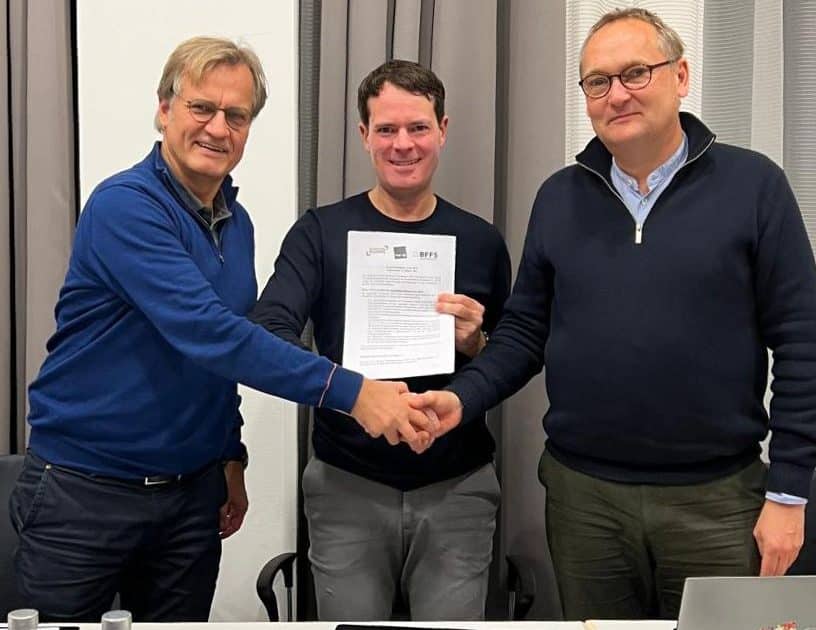Photo from left to right: Bernhard Störkmann (BFFS – actors’ union), Björn Böhning (Produktionsallianz – Geraman producers’ association), Matthias von Fintel (ver.di – head of the media and cinema sector)
The new collective agreement covering more than 25,000 self-employed workers in Germany provides for a reduction in working hours, a sectoral pension scheme, salary increases and the first regulations on the use of AI.
After a year of intense negotiations, ver.di, affiliated with the UNI Global union, and the actors’ union BFFS have concluded a new collective agreement with Produzenten Allianz, the association of the German film and television production sector. Finalized on October 12, 2024 in Berlin, the new collective agreement introduces several key advances for workers, including reduced working hours, the establishment of an industry-wide pension scheme and increases in salary. It also represents a crucial first step towards regulating the use of generative AI in film productions, with negotiations on this aspect still ongoing.
One of the most important achievements is the reduction of the maximum daily working hours to 12 hours, with new bonuses for overtime beyond 10 hours and additional compensation for extended firing periods. From May 2025, new arrangements, including additional paid days off and compensation for overtime, aim to help establish a more balanced work-life schedule, as well as the introduction of a four-day working week once a month.
The agreement also provides for two salary increases of 2.5% each, scheduled for May 2025 and January 2026. In addition, the agreement provides for the introduction of a pension scheme with an employer contribution of 4%. This pension scheme will be submitted to the Federal Ministry of Labor and Social Affairs (BMAS) for general application across the sector, which would entail compulsory contributions from non-signatory companies and establish a pension scheme. sector-wide retirement.
Matthias von Fintel, chief negotiator of ver.diunderlined the importance of this agreement: “Reduced working hours, increased free time, salary increases, a pension plan for film productions and the first regulations for the use of AI are setting new historic standards for the industry. This collective agreement marks the biggest progress for cinema workers in Germany in decades“.
UNI Global Union, which represents media and entertainment workers around the world, congratulates German unions on this important victory for workers. “Agreement marks another step in global effort to reduce excessive working hours and improve working conditions for media and entertainment professionals” said Johannes Studinger, head of the media, entertainment and arts sector of the UNI Global union. “It highlights the power of collective bargaining and reinforces our shared commitment to ensuring fair wages, better working conditions and social protections for freelancers..”
The agreement, which runs until 2027, is another milestone in the efforts of the global community of media and entertainment unions to evolve the global film and television industry. UNI member unions continue to work together and support each other to ensure safe working hours and better work-life balance, to ensure dignity and safety at work and to expand collective bargaining with a view to to achieve fair wages and sustainable careers.


